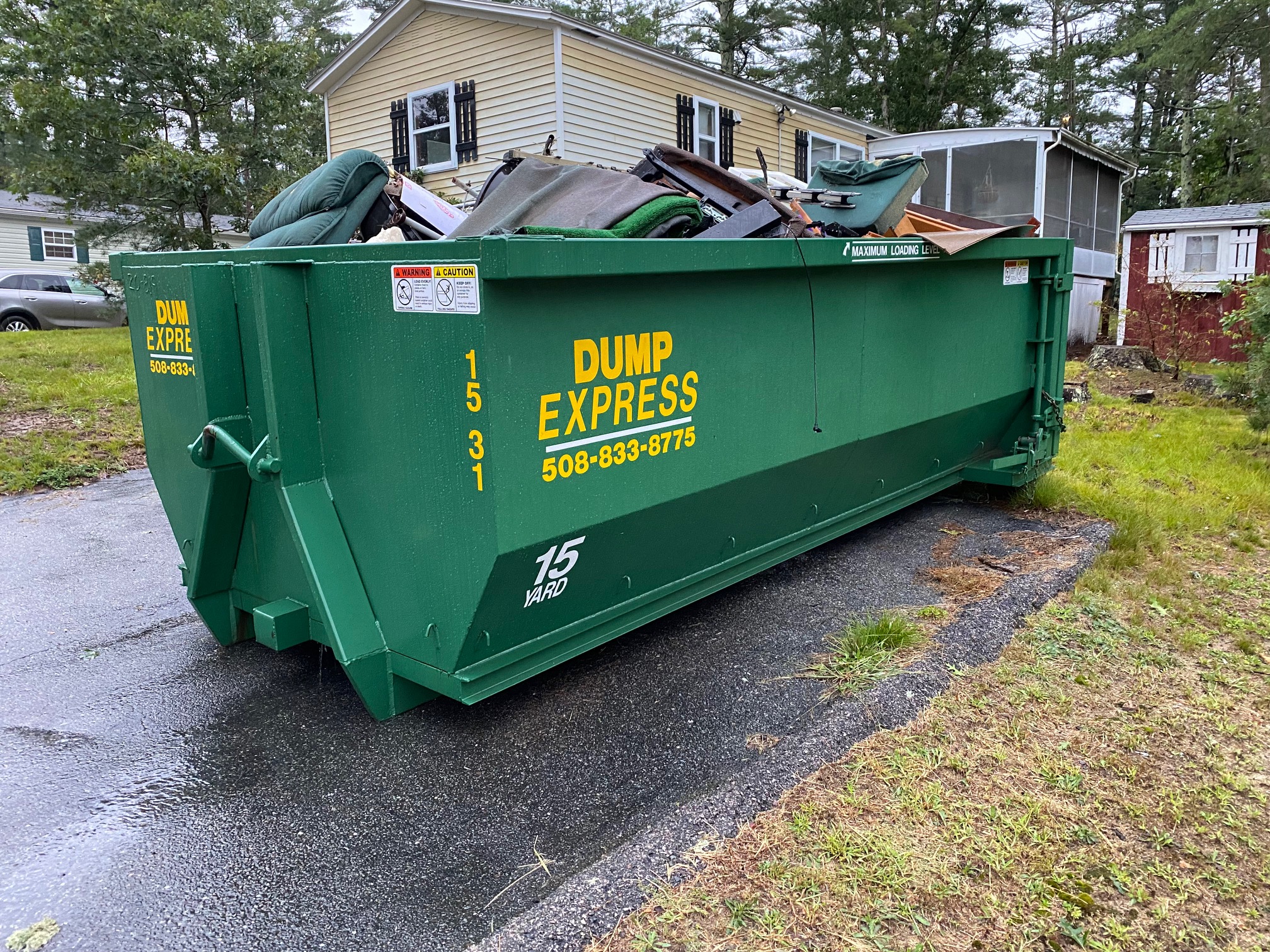Renting a dumpster on Cape Cod can be an excellent solution for managing waste from home renovations, cleanouts, landscaping projects, and other large-scale endeavors. It can make your life easier, however, there are several common mistakes that people often make when renting a dumpster, which can lead to unnecessary complications and expenses. To ensure a smooth and hassle-free rental experience, it’s essential to be aware of these pitfalls and how to avoid them.
1. Choosing the Wrong Dumpster Size
One of the most common mistakes is selecting the wrong dumpster size. Opting for a dumpster that is too small can result in the need for additional rentals, while choosing one that is too large can lead to wasted space and higher costs.
How to Avoid It:
- Assess the volume of waste your project will generate. Read how to choose right dumpster size in our blog.
- Consult with the rental company to determine the appropriate size based on your specific needs.
- When in doubt, it’s often better to choose a slightly larger dumpster to avoid overflow issues.
2. Not Understanding Local Regulations and Permits
On Cape Cod, there may be specific regulations and permit requirements for placing a dumpster on your property or the street. Ignoring these can result in fines or having your dumpster removed.
How to Avoid It:
- Check with your local government or municipality about any regulations or permits needed.
- The rental company can often provide guidance on local rules and help obtain necessary permits.
3. Incorrectly Estimating Rental Duration
Underestimating how long you’ll need the dumpster can lead to unexpected extensions and additional fees, while overestimating can mean paying for unused time.
How to Avoid It:
- Plan your project timeline carefully and factor in some buffer time for unexpected delays.
- Discuss your project details with the rental company to get their recommendation on rental duration.
4. Placing Prohibited Items in the Dumpster
Certain items are not allowed in dumpsters due to environmental regulations and disposal guidelines. Placing prohibited items can result in fines, extra charges or refusal of the dumpster. Also, certain items have recycling surcharges, you can check our surcharge items and make sure you’re aware of it.
How to Avoid It:
- Review the list of prohibited items provided by the rental company, which typically includes hazardous materials, liquids and certain mixed items.
- Separate and dispose of restricted items through appropriate channels, such as recycling centers or hazardous waste disposal facilities.
5. Overloading the Dumpster
Filling the dumpster beyond its capacity or weight limit can cause issues with transportation and incur additional fees. Also, keep in mind that dumpster rental companies will not collect items that you put next to a dumpster.
How to Avoid It:
- Pay attention to the fill line indicated on the dumpster.
- Evenly distribute the waste to avoid overloading one side.
- Consider renting a second dumpster if you have a large amount of heavy material.
6. Blocking Access to the Dumpster
Parking vehicles or trailers in front of the dumpster will make it difficult to access and can complicate the delivery and pickup process, leading to delays and additional charges.
How to Avoid It:
- Choose a location that is easily accessible for the delivery truck, typically on a flat, hard surface.
- Ensure there are no obstacles, such as parked cars or low-hanging branches, that could impede access.
7. Not Comparing Rental Companies
Selecting the first dumpster rental company you come across without comparing others can result in higher costs and subpar service.
How to Avoid It:
- Research and compare several rental companies on Cape Cod based on pricing, services offered, and customer reviews.
- Look for a company with a good reputation and transparent pricing.
8. Not Breaking Down Large Items
Large, bulky items can quickly fill up your dumpster if not managed properly. Breaking them down into smaller pieces can help you maximize space.
How to Avoid It:
- Disassemble furniture: Take apart tables, chairs, and other furniture items to save space.
- Break down boxes: Flatten cardboard boxes before placing them in the dumpster.
9. Not Planning for Recycling
Failing to separate recyclable materials from general waste can lead to unnecessary landfill use and missed recycling opportunities.
How to Avoid It:
- Set up separate bins for recyclables such as metal, cardboard, and certain plastics.
- Inquire if the rental company offers recycling options or partners with local recycling facilities.
10. Delaying the Rental Process
Waiting until the last minute to rent a dumpster can lead to availability issues and rushed decisions, potentially increasing costs and complicating logistics.
How to Avoid It:
- Plan and book your dumpster rental well in advance of your project start date.
- Provide accurate details about your project to ensure the rental company can meet your needs promptly.
Renting a dumpster on Cape Cod can significantly streamline your waste management process for various projects. By avoiding these common mistakes, you can ensure a smooth, efficient, and cost-effective rental experience. Choosing the right dumpster size, understanding local regulations, accurately estimating rental duration, and planning for recycling are all essential steps in making the most out of your dumpster rental. Additionally, working with a reputable and experienced rental company can provide invaluable guidance and support throughout the process.
Taking the time to research, plan, and communicate effectively will help you avoid unnecessary complications and make your project run more smoothly. Whether you’re tackling a home renovation, a landscaping project, or a large-scale cleanout, renting a dumpster can provide the convenience and efficiency you need to get the job done right.

